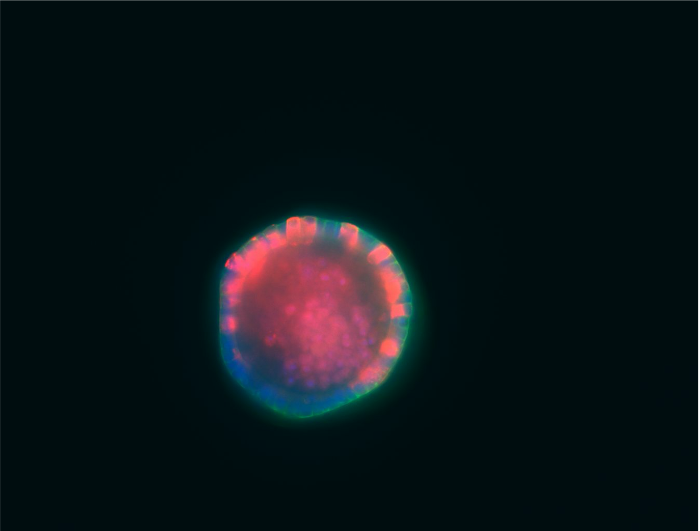Investigators at the Brigham and the Broad Institute have created specialized, tissue-like structures in the laboratory to model barrier tissues, such as the intestines, to identify new targets for treatment. Barrier tissues are exposed to substances from the outside world but serve as a layer of protection. Over the years, researchers have developed more sophisticated, three-dimensional models of epithelial barrier tissues, such as the intestine. These models are known as intestinal organoids. In a new study, investigators discovered a tissue-modifying molecule that can target intestinal stem cells and signal them to create Paneth cells, a rare but important cell type that can alter the gut microbiota. Previous studies have shown that Paneth cells are depleted in diseases such as inflammatory bowel disease and graft-versus-host disease. Replenishing these rare cells could represent a new therapeutic pathway. The team’s approach could also be used to identify molecules that could target other intestinal cell types.

Credit: Benjamin Mead and Jeff Karp
Investigators at the Brigham and the Broad Institute have created specialized, tissue-like structures in the laboratory to model barrier tissues, such as the intestines, to identify new targets for treatment. Barrier tissues are exposed to substances from the outside world but serve as a layer of protection. Over the years, researchers have developed more sophisticated, three-dimensional models of epithelial barrier tissues, such as the intestine. These models are known as intestinal organoids. In a new study, investigators discovered a tissue-modifying molecule that can target intestinal stem cells and signal them to create Paneth cells, a rare but important cell type that can alter the gut microbiota. Previous studies have shown that Paneth cells are depleted in diseases such as inflammatory bowel disease and graft-versus-host disease. Replenishing these rare cells could represent a new therapeutic pathway. The team’s approach could also be used to identify molecules that could target other intestinal cell types.
“Our paper provides the first approach to engineering our barrier tissues like the intestine by targeting and activating stem cells in situ and causing new important cell types to form,” said co-lead author Benjamin Mead, PhD, of the Broad Institute. “This could be used to potentially treat a wide range of diseases by manipulating the cell composition of the intestine.”
“This approach has wide ranging implications and can be used to manipulate the cellular makeup of the intestine, including cells that can enhance barrier function, produce gut hormones, or that have key roles in coordinating insulin levels as well as food digestion and absorption,” said co-corresponding author Jeff Karp, PhD, Distinguished Chair in Clinical Anesthesiology, Perioperative and Pain Medicine. “This approach also enables a completely new strategy to manipulate gut microbiota and thus offer insights into the treatment of a wide range of diseases.”
Read more in Nature Biomedical Engineering.
Journal
Nature Biomedical Engineering
DOI
10.1038/s41551-022-00863-9
Method of Research
Experimental study
Subject of Research
Cells
Article Title
Screening for modulators of the cellular composition of gut epithelia via organoid models of intestinal stem cell differentiation
Article Publication Date
21-Mar-2022
COI Statement
J.M.K. and R.L. hold equity in Frequency Therapeutics, a company that has an option to license IP generated by J.M.K. and R.L. and that may benefit financially if the IP is licensed and further validated. The interests of J.M.K. and R.L. were reviewed and are subject to a management plan overseen by their institutions in accordance with their conflict-of-interest policies. J.O.-M. reports compensation for consulting services with Cellarity and Hovione. A.K.S. reports compensation for consulting and/or SAB membership from Merck, Honeycomb Biotechnologies, Cellarity, Repertoire Immune Medicines, Third Rock Ventures, Ochre Bio, FL82, Relation Therapeutics Limited, and Dahlia Biosciences. The other authors declare no competing interests.




